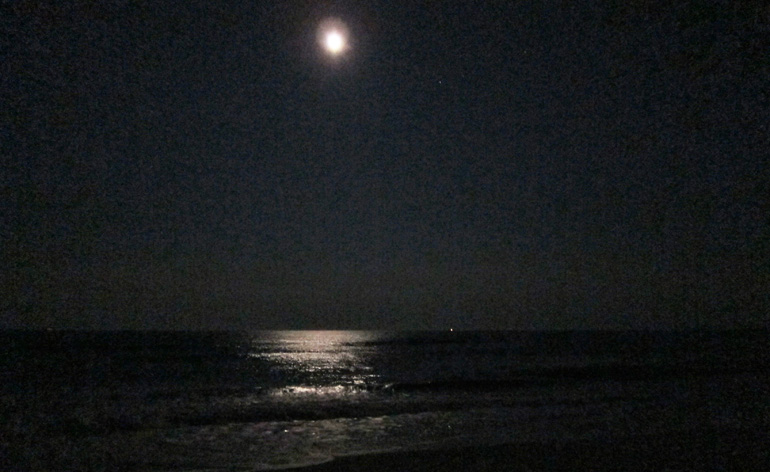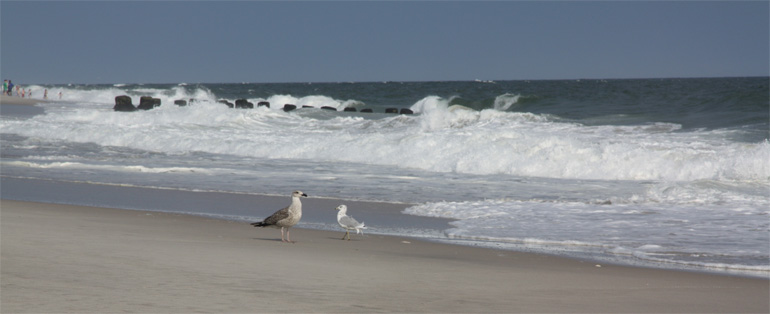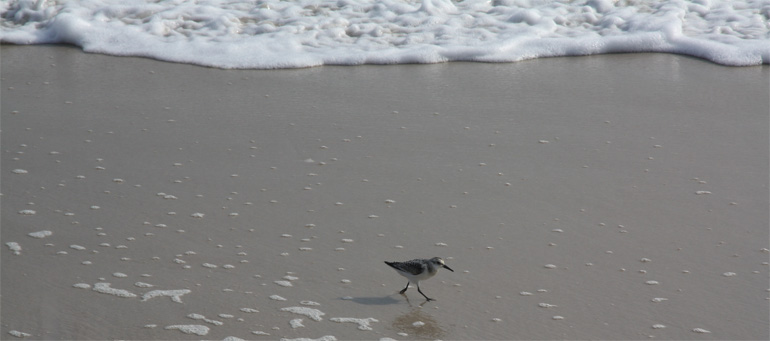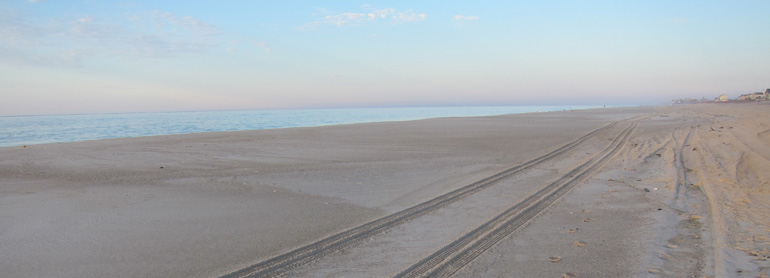Beachcombing:
Summer Hours
July 2012
Tuesday, July 31st, 2012
¶ Tom Phillips has served, amazingly, as the British Ambassador to both Saudi Arabia and Israel. His ten-point argument that “There May Never Be Peace” in the Middle East is chillingly convincing. Much seems to depend, however, upon continued US support for Israel. That’s rock-solid now, to judge by appearances, but few things are more fickle than foreign policy. (Prospect; via The Browser) ¶ A number of items appeared during July that helpfully explain just what “Alawite” means in Syrian affairs, and why talk of an “Alawite homeland” is (probably) nonsense. Here are two: Joshua Landis (Eurasia Review; via The Browser); Faisal Al Yafai (The National; via Real Clear World). Plus a very useful essay on the origins of the Alawi “heresy” by Steve Tamari. (Jadaliyya; via The Browser)
¶ Our first response to V X Sterne’s confession that he’s finding it a bit tricky to compose a meaningful profile for online dating sites was to recommend slipping in a link to Outer Life. That way, prospective girlfriends could read all about it. Our instant second response was to scratch that. Would they be “reading all about it,” really? And would VX want them to? For all its discretion and anonymity, Outer Life manages to be rigorously unsparing without being at all self-indulgent. A pleasure to read, but not compliant with generally-accepted principles of advertising. ¶ We’re not sure that we followed everything that Rebeka Cox has to say about identity in the age of WiFi, but the gist of it is certainly intriguing: “I think in its most basic form, your identity is the product of how you manage your attention and others’ access to that attention.” (Quora; via Snarkmarket) ¶ In “Happy Birthday Dad,” Steeforth wishes that his father were still around, for his 86th birthday. A beautiful card. (The Age of Uncertainty)
¶ How nice to see Maria Bustillos at Page-Turner. She confronts the awful truth about not being able to read everything, and confronts it with recommendations by Orwell, Miller, and others. (We would not have picked Ms Bustillos as a likely fan of Ivy Compton-Burnett!) ¶ At the Awl, she interviews Tom Scocca, whose Beijing Welcomes You has just come out. Quite beside the point, but most memorably, Scocca opines that (the Times column) “‘Modern Love’ is, to me, basically an ongoing crime against humanity. (The Awl) ¶ Greer Mansfield considers Lawrence Durrell, whose centenary year this is. (Bookslut)
Durrell fans are still devoted to the series. Current bookchat writers, when they mention it at all, seem fixated on (and a bit embarrassed by) its luxuriant prose style. “Purple prose” is the lazy epithet that critics use for this sort of thing, forgetting that a rich prose like Durrell’s paints with a variety of colors. The merely verbose writer uses an inflated vocabulary to avoid contact with anything graspable; this isn’t the same as a writer who has a sensual love of the language and the things it describes.
¶ At The House Next Door, Odie Henderson argues con brio that Steve Martin’s Roxanne is an improvement upon Rostand’s original. (We’ve always thought so, too.) ¶ At The Hairpin, Kase Wickman talks to Lauren Greenfield about her friendship with the Queen of Versailles, Jackie Siegel. ¶ Also at The Hairpin, Anne Helen Petersen combs out the career of Warren Beatty, with many dishy pictures. ¶ Scott Esposito holds up Geoff Dyer’s Zona to the clear light of Roland Barthes’s S/Z and finds it wanting; but he also makes Dyer’s book sound a lot more readable. But then we always roll our eyes when Dyer talks theory. (Barnes and Noble Review; via Conversational Reading) ¶ Scott also tips us off to another smackdown of sorts, Brian Platzer’s argument that The Art of Fielding is no more “literary” than The Hunger Games. (Salon) ¶ Lesley Downer reviews Timon Creech’s Obtaining Images: Art, Production and Display in Edo Japan, calling it “a beautiful book, full of insights on every page.” If the review itself is any indication, we’ve got to get a copy! (Literary Review; via 3 Quarks Daily) ¶ Julian Barnes, in a piece about his book-buying life, puts it with the artful simplicity of a great Latin motto: “The dividing line between books I liked, books I thought I would like, books I hoped I would like and books I didn’t like now but thought I might at some future date was rarely distinct.” (Guardian; via Arts Journal) ¶ PEN alert from Turkey: works by William Burroughs and Chuck Palahniuk may be unpublishable as “obscene.” Nobody actually reads Burroughs in Turkey (or out of college anywhere, we’d venture), but “Palahniuk is popular.” It will be interesting to see how that distinction plays out in currently-postponed judgments. (via The Millions) ¶ At the Guardian, P D James answers readers’ questions. Autumn is the season for murder.
¶ Bill Morris extols the Fifth Edition of the (traditionally prescriptivist) American Heritage Dictionary, calling it fun to read; but he wonders how in hell Steven Pinker was assigned the introductory essay? (The Millions)
I can still remember the night in high school when I finished typing up a 17-page paper on my latest passion, Albert Camus. It was due the next morning, and I took it downstairs to present it to my father, terribly proud of myself. He read the opening sentence and immediately reached for the Cross pen in his shirt pocket. I looked on, aghast, as he circled a word in ink. He read the sentence aloud: “Before his premature death in a car crash in 1960 at the age of 46, Albert Camus had cemented his reputation as one of the most influential writers of the 20th century.â€Â Then my father said, “The word premature usually refers to a birth that takes place before the baby is ready. Untimely is the word you want if you’re referring to a man’s death at a relatively early age. Or possibly inopportune.†He continued to carve up my paper with ink marks, then sent me back upstairs to rework it. I spent most of the night editing and retyping the mess. Of course I got an A+ for the paper. Far more important, I’ve never forgotten the difference between premature and untimely.
¶ Three pieces from The Bygone Bureau, jolly, triste, and amazed by turns. ¶ Not just a great letter (to Maurice Sendak, telling him not to mope about his “vagueries“), but a good picture, too, of legendary children’s-book publisher Ursula Nordstrom, @ Letters of Note. ¶ Elon Green writes about the beginning of Maureen Dowd’s long career at the Times, recalling the AIDS beat that never was. (The Awl) ¶ Dylan Nice (still a young man today) looks back to his freshman year of college, and the dent that George Orwell’s “Shooting an Elephant” put in his backwoods armor. “In the span of a few thousand words over a half-century old, the world got bigger for me in a quiet way.” (The Rumpus) ¶ Maria Popova continues her exploration of not-new books about imagination and discovery with An Anatomy of Inspiration, a “slim” volume from 1942 by Rosamund Harding. How did notions of inborn genius survive books like this? (Brain Pickings)
¶ July 2012 is going to be remembered as the month in which former Master of the Universe Sandford Weill surprised everyone by calling for a restoration of a Glass-Steagall-like barrier between investment banking and deposit banking. We take this as the sign that Big is no longer Beautiful. James Kwak seems to have seen it coming at the end of June: “Who Wants Big Banks?” (Baseline Scenario) ¶ Felix Salmon argues that Smaller is Better because small organizations have to compete for trust, but he is not optimistic about bank breakups. ¶ In another piece from this month, Felix dissects the problem of public education — his dramatis personae is worth the click all on its own — and urges that “the management” — everyone from the principals to the President — work hard at giving up as much control as possible. Consolidation of power is, once again, a bad thing; yes indeed!  Â
¶ Sad but true: we remember when Naked Came the Stranger came out, so to speak. Aside from the naughty bits, which were either improbable or Eeew!, it was a terrible book, a dumptruck of clichés excavated from lower drawers otherwise a-clatter with old bottles of whiskey. As Nicole Cliffe observes (though hardly from experience, one imagines, “the late 1960s were a golden era of terrible writing. (The Awl) ¶ Sadder but just as true: if they legalized marijuana, and it was as cheap as Matthew Iglesias says it would be, we’d be too old to care. (Slate; via The Morning News) ¶ At The Millions, Michael Bourne says grown-up things about the High Line, not that he doesn’t like it. “The underlying aesthetic of the park’s design may be a tad fatuous, girded as it is by unexamined assumptions about working-class authenticity, but the park itself is a gorgeously executed gem.” ¶ Who can tell us what Robert Sullivan is satirizing in “Me and My Adult Stroller“? (The Awl)
In fact, I have a great relationship with my pusher, Paul. Paul just graduated from Cornell, a finance major, and was already my personal assistant when he took on his extra duty. All I had to do was tweak his pay. Now, he gets to stay in shape while on the job, and the new arrangement keeps us at a healthy and ultimately more comfortable distance, since we now mostly communicate by cell phone and text.
New: ¶ John Simon is not only alive and well &c but blogging!
Have a Look: ¶ Ryan Brenizer’s photos of the derecho storm over Manhattan @ GOOD. (That’s exactly what it looked like from our balcony). ¶ What cricket looks like to Americans, @ kottke.org. ¶ The Saddest House in New York City, @ Scouting New York. ¶ Choreography for Plastic Army Men, @ Three Quarks Daily. ¶ Happy Birthday to Milton Glaser, @ Brain Pickings. ¶ Web Browsers Jason Kottke has known. ¶ New American Painting‘s list of ten most important post-2000 American painters. (via The Morning News) ¶ English Church Architecture. (via MetaFilter) ¶ Studio Bumpers. (The Awl) ¶ Higgs Boson Explained @ Brainiac.
Noted: ¶ DIY non-toxic household cleaners (also cheap), @ GOOD. ¶ Nige on Spem in alium. ¶Teju Cole on the “Man in a Turban.” (New Inquiry; via 3 Quarks Daily) ¶ At The Millions, a roundup of new fall books. Also: “A Beginner’s Guide to Alice Munro.” ¶ Kasia Ceplak-Mayr von Baldegg explains one of the more bizarre modern products, sliced bread. (The Atlantic; via The Morning News) ¶ Popehat’s Bar Exam Story. ¶ Alec Nevala-Lee on The Lehrer Affair. (The Rumpus) ¶ No buyers for Dawn Powell’s diaries. (Page-Turner) ¶ Daniel Gelernter’s blithely bad temper about intellectuals. (Chron Higher Ed), while Sean Collins calmly reconsiders Allan Bloom big book. (Spiked Review of Books; via Arts Journal) ¶ Wallis or Elizabeth? (The Awl) ¶ The gene behind cardboard tomatoes. (Not Exactly Rocket Science)











